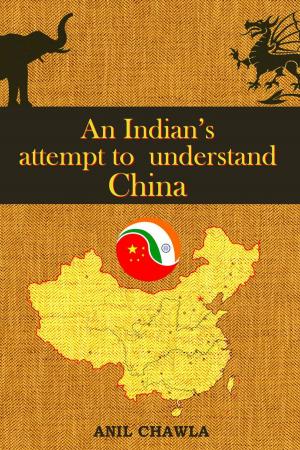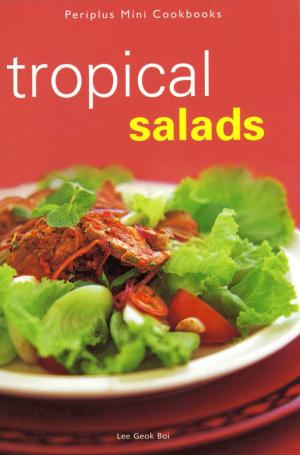The Beauty That Remains
A Vietnamese Refugee's Journey to Freedom
Nonfiction, Social & Cultural Studies, Political Science, Government, Communism & Socialism, History, Military, Vietnam War, Asian| Author: | Quynh Dao | ISBN: | 9780957748248 |
| Publisher: | Quynh Dao | Publication: | April 7, 2017 |
| Imprint: | Heart Books | Language: | English |
| Author: | Quynh Dao |
| ISBN: | 9780957748248 |
| Publisher: | Quynh Dao |
| Publication: | April 7, 2017 |
| Imprint: | Heart Books |
| Language: | English |
The Beauty That Remains charts the author's escape from communist Vietnam, her stay in a Malaysian refugee camp, and her first years in Australia, with all the drama and the hilarity of a bumbling young woman from a small town in Vietnam who tried to learn, adapt and make sense of Australian culture and society.
Her boat drifted for a week in the open sea, got caught in a raging storm, survived two pirate attacks; she and her boat companions found themselves in one extraordinary situation to the next before they reached the Malaysian shores where they were allowed to land.
Life in a Malaysian refugee camp was a far cry from the author’s privileged childhood. People lived in tents and crowded barracks. Strangers slept next to each other, separated only by an invisible demarcation line during the day and the flimsy wall of the mosquito nets at night. Tinned sardines and cooked rice might be tasty, but not if they were part of an unchanged camp’s ration. The hygienic condition was appalling. ‘Until I left the camp, I had forgotten what clean air smelled like,’ the author wrote.
The physical hardship could not dampen the author’s sense of joy - the joy of being alive, of being able to sing love songs and cite love poems banned by the communists again for the first time.
The author’s anecdotes of her early years in Australia reflected her overwhelming sense of love and gratitude towards a generous country and a compassionate people that gave her the precious gift of freedom and the chance to start a new life:
‘Back in Vietnam the communists chose the houses they liked. The house owners and their families were thrown out in the street. This happened to my family. Here in Australia, strangers came to our aid and gave us this beautifully furnished house - just like that. All we needed to do was to live in it.
I was overwhelmed with gratitude and yet a shy “thank you” was all I could mutter.’
Personal and historical perspectives are interwoven, shedding new light on the tragedy of Vietnam ‘at peace’ and the senseless cruelty inflicted on the vanquished South Vietnamese by a revengeful communist force that was the root cause of the Vietnamese Boat People phenomenon.
The author skilfully steers the narrative away from a gloomy path. A gentle sense of humour filters through the entire memoir, reminding readers of the lighter side of life, that grace comes with a deep sense of gratitude, and the wonderful healing power of human kindness.
There will be many confronting scenes that evoke strong emotions, there will also be many heart-warming moments that cause the reader to smile.
So much beauty still remains.
The Beauty That Remains charts the author's escape from communist Vietnam, her stay in a Malaysian refugee camp, and her first years in Australia, with all the drama and the hilarity of a bumbling young woman from a small town in Vietnam who tried to learn, adapt and make sense of Australian culture and society.
Her boat drifted for a week in the open sea, got caught in a raging storm, survived two pirate attacks; she and her boat companions found themselves in one extraordinary situation to the next before they reached the Malaysian shores where they were allowed to land.
Life in a Malaysian refugee camp was a far cry from the author’s privileged childhood. People lived in tents and crowded barracks. Strangers slept next to each other, separated only by an invisible demarcation line during the day and the flimsy wall of the mosquito nets at night. Tinned sardines and cooked rice might be tasty, but not if they were part of an unchanged camp’s ration. The hygienic condition was appalling. ‘Until I left the camp, I had forgotten what clean air smelled like,’ the author wrote.
The physical hardship could not dampen the author’s sense of joy - the joy of being alive, of being able to sing love songs and cite love poems banned by the communists again for the first time.
The author’s anecdotes of her early years in Australia reflected her overwhelming sense of love and gratitude towards a generous country and a compassionate people that gave her the precious gift of freedom and the chance to start a new life:
‘Back in Vietnam the communists chose the houses they liked. The house owners and their families were thrown out in the street. This happened to my family. Here in Australia, strangers came to our aid and gave us this beautifully furnished house - just like that. All we needed to do was to live in it.
I was overwhelmed with gratitude and yet a shy “thank you” was all I could mutter.’
Personal and historical perspectives are interwoven, shedding new light on the tragedy of Vietnam ‘at peace’ and the senseless cruelty inflicted on the vanquished South Vietnamese by a revengeful communist force that was the root cause of the Vietnamese Boat People phenomenon.
The author skilfully steers the narrative away from a gloomy path. A gentle sense of humour filters through the entire memoir, reminding readers of the lighter side of life, that grace comes with a deep sense of gratitude, and the wonderful healing power of human kindness.
There will be many confronting scenes that evoke strong emotions, there will also be many heart-warming moments that cause the reader to smile.
So much beauty still remains.















